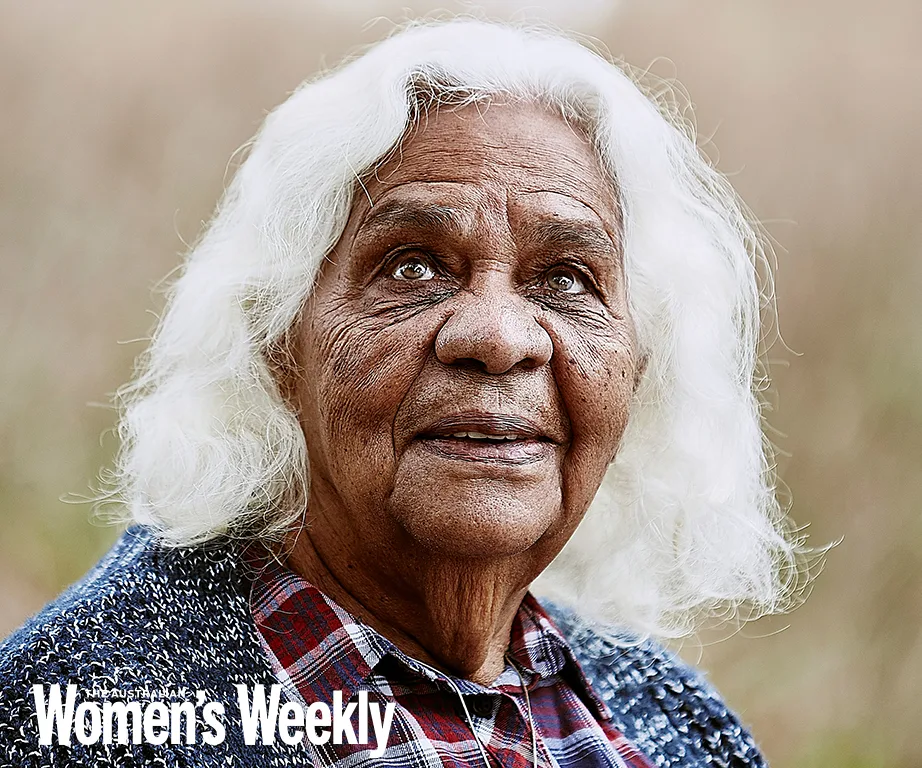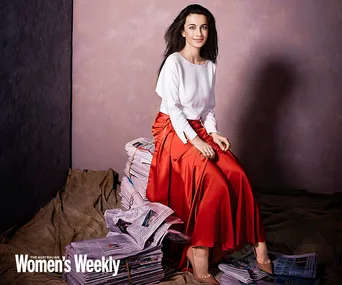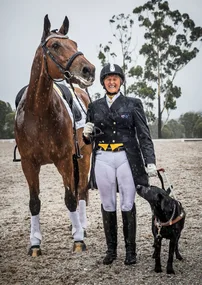Yukultji Napangati
Artist
Yukultji Napangati, walked out of the Western Australian desert in 1984 with eight other members of her family.
She was 14 years old, a Pintupi girl who had never had contact with Western culture, but she had lived her whole life in intimate contact with the land that she still loves, around Wilkinkarra (Lake Mackay), midway between Port Hedland and Alice Springs.
No one taught Yukultji her art. She says that she “just started to paint, from thoughts in my head…”
She paints shimmering, vibrating landscapes, that reference the rock forms and waterholes, the plants and the ancestral stories of her country.
And this year she won Australia’s most prestigious award for landscape painting, the Wynne Prize. Her winning painting captures the landscape around Yunala, a waterhole surrounded by sandhills west of Kiwirrkura, where she lives and has her studio.

Artist Yukultji Napangati has been painting for over 20 years.
Yukultji began painting in 1996 and has become one of the Papunya Tula Artists’ most admired painters. Yukultji has travelled as far afield as New York City and her work has travelled further still, but there’s still nowhere she’d rather be than home.
She didn’t come to Sydney to collect her award this year because she was out on country, attempting to control an unruly population of feral cats.
Veronica Dobson AM
Author, Linguist, Botanist, Elder
Veronica Dobson sits with her back to the sun, which lights up her silver curls like a halo. At 74, she is quick, articulate, focused, but warm like that morning sun too.
Veronica was born at Arltunga, north-east of [Alice Springs], and grew up with her grandparents, helping out on the cattle stations where they worked, trailing them through the landscape, developing a keen ear for their language (Eastern Arrernte) and their storehouse of botanical and cultural knowledge.

Veronica Dobson says that the land inspires her.
At five, Veronica was sent away to boarding school, where Arrernte was forbidden, but since then (aside from raising four children and now watching five grandchildren grow), recovering and preserving language, culture and environment have been her life’s work.
“This is a spiritual land,” she says, “and the land inspires me.”
To date, it has inspired her to co-author an Eastern Arrernte dictionary and books on botany and medicinal plants, develop curriculum resources to teach Aboriginal languages in schools, and work on environmental management.
Veronica takes groups of young people out onto country to share with them some of the wisdom she absorbed.
“This knowledge – it’s not mine – it belongs to all of us. We need to hand this knowledge down.”
This story originally appeared in the July 2018 edition of The Australian Women’s Weekly.




